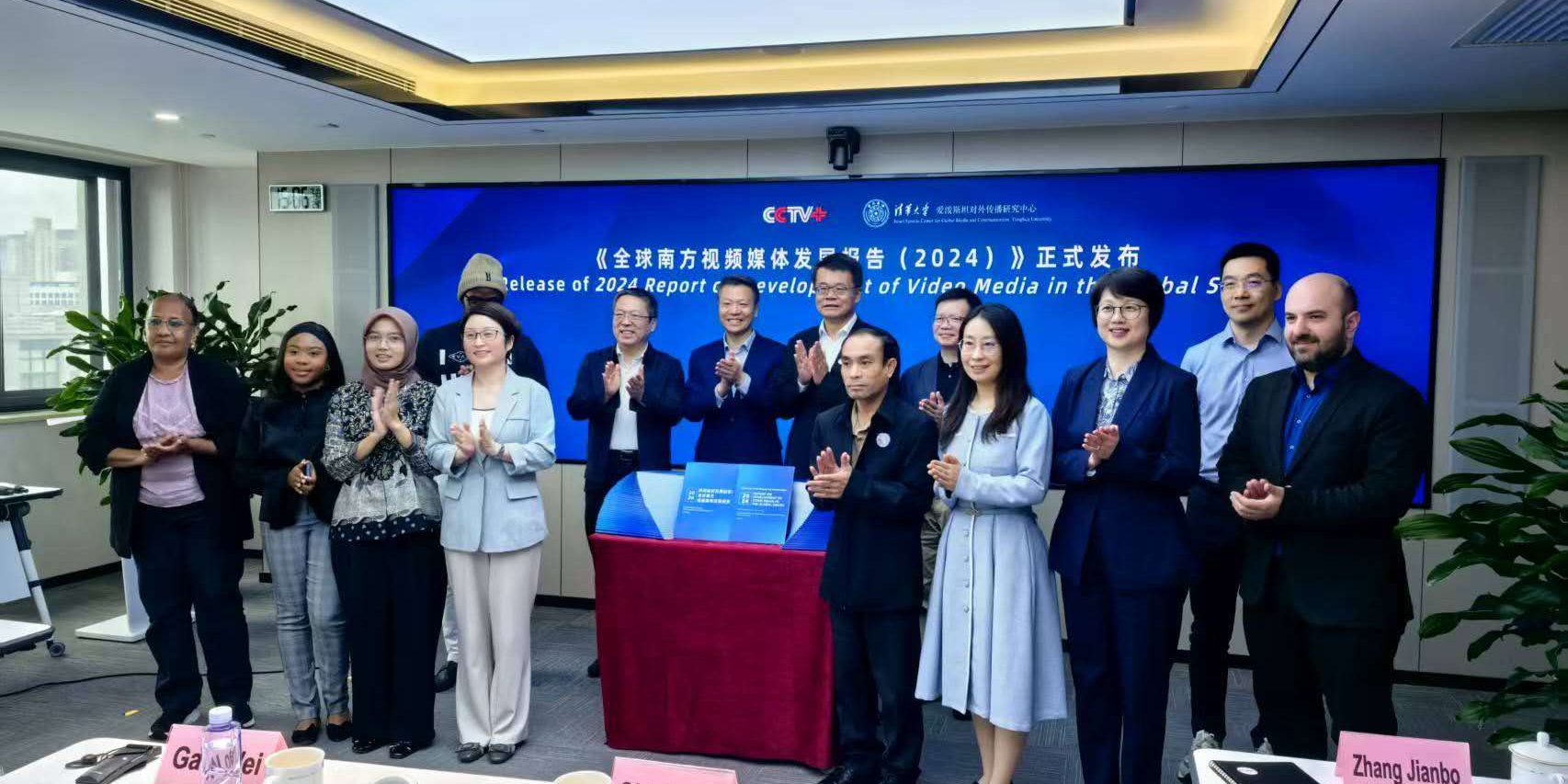A GLOBAL South Media Exchange initiative was launched in Beijing, alongside the release of the “2024 Report on Development of Video Media in the Global South”, ushering in a new era of collaboration between China and other members of the Global South region to enhance their online media platforms to tell their stories to the world.
The launching ceremony was held on Friday 23 May at the CCTV+ headquarters.
Media representatives from the Asia, Pacific and Caribbean regions as well as Iran and Turkey, attending a media exchange program hosted by the China International Press and Communication Center (CIPCC) for international journalists, participated in the program alongside officials and experts from the Chinese media industry.
Global South Media Exchange
This mechanism is aimed at building a platform for dialogue and cooperation among the media of the Global South countries, constructing a more equitable, diverse and inclusive global media ecology, building consensus on development among the Global South through media power, and safeguarding the voice and fundamental interests of developing countries.
This mechanism encourages all-round, multi-level practical cooperation, including content sharing, business training, joint production and broadcasting, media technology innovation, communication dialogue, content dissemination and media research among all partners.
2024 Report on Development of Video Media in the Global South
Guided by the United Nations’ 2030 Sustainable Development Goals and China’s Global Development Initiative (GDI), Global Security Initiative (GSI) and Global Civilization Initiative (GSI), this report integrates case studies and in-depth interviews to provide a timely, localized and innovative interpretation of the academic concept of ‘development journalism’ by thoroughly analyzing the development of journalism practices of video media in the Global South.
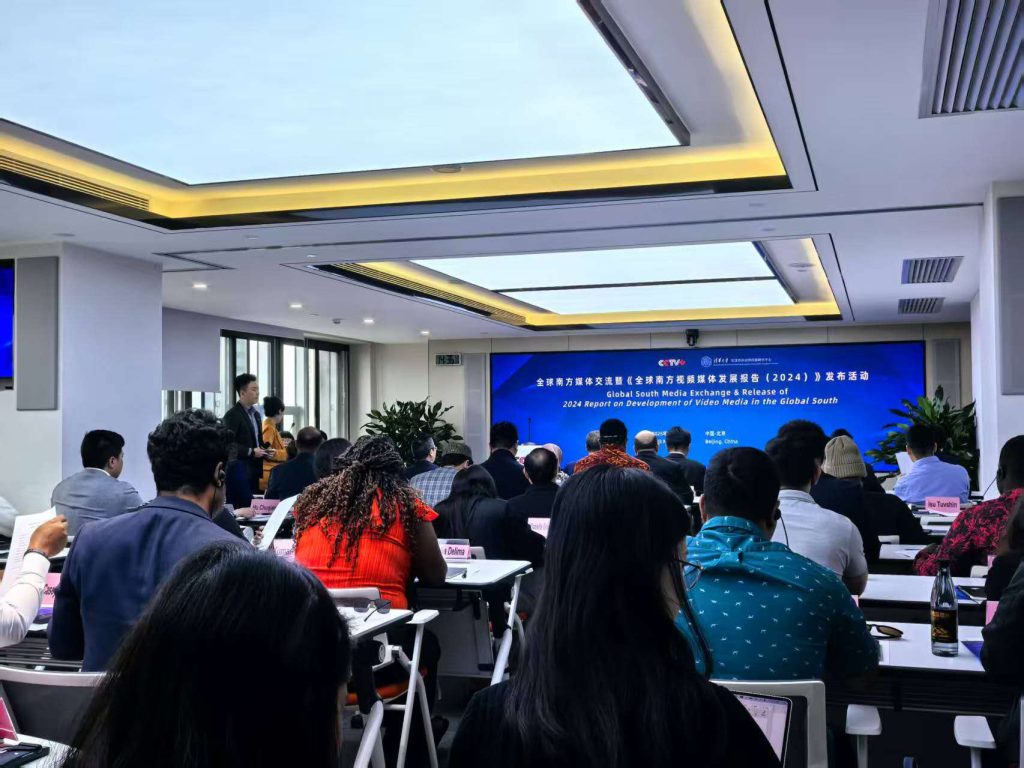
It is structured in three main sections – Defining Development: Development Perspectives of Video Media in the Global South, Interpreting Development: Practices for Development Journalism of Video Media in the Global South and Promoting Development: Actions taken by Video Media in the Global South for Development.
The report highlights the following key developments:
- Development journalism practices of video media in the Global South are focused on the reconstruction of development perspectives, improvement of development narratives and the promotion of development actions, and this highlights their increasingly significant role in the global development system.
- The development perspective of video media in the Global South have achieved a transformation and upgrade from local experience to a global vision, which exemplifies both incremental growth and quality improvement through reporting methods that combine constructiveness and critical analysis.
- The development narrative of video media in the Global South strives for a balance among contents, platforms and collaboration, and that it optimizes agenda-setting for development by leveraging digital and intelligent audio-visual media in multiple ways and exploring the integration of autonomy and cooperation.
- The video media of the Global South empowers audiences, strengthens connections among Global South countries, and collectively tell the story of development and thus play the dual role of supervision and construction.
- The video media of the Global South tell development stories, which inherently possess strong reflexivity and criticality based on the discussions of the 20th century on the New World Information and Communication Order (NWICO) and the need to correct the shortcomings of traditional value standards of western news.
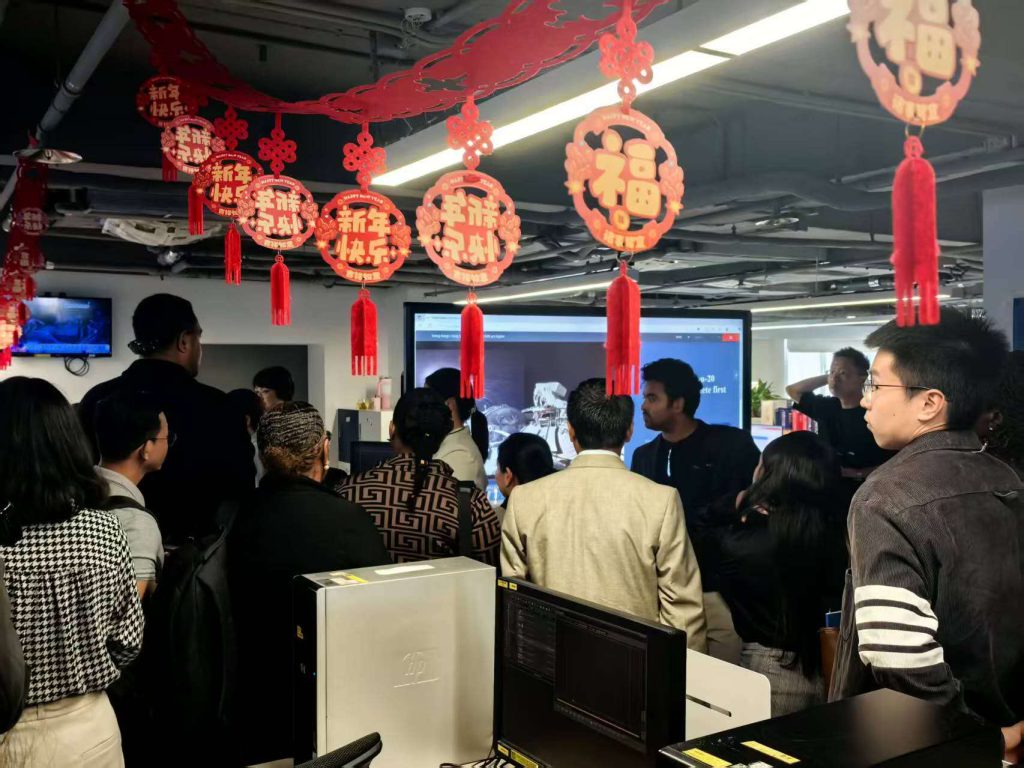
Launching ceremony speech highlights
Delivering the keynote address at the event, Chair of the Board of the School of Journalism and Communication at China’s Tsingua University, Director for Israel Epstein Center and Principal Investigator of the 2024 Project on Development of Video Media in the Global South, Professor Dr Shi Anbin highlighted the significance of the Global South Media Exchange mechanism in enhancing media collaboration and capacity of the Global South countries to promote development.
Dean of the School of Journalism and Communication at China’s Renmin University, Zhou Yong and the Deputy Dean of the School of International Journalism and Communication at the Beijing Foreign Studies University, Liu Ying also spoke at the event.
Zhou highlighted that Global South countries have really good stories to tell, and these countries themselves can tell these stories well, and hence the importance of this Global South Media Exchange mechanism.
Liu underscored the importance of the Global South Media advancing a development-promotion news approach.
Liu said the 2024 Report on Development of Video Media in the Global South, captures the efforts taken to build a coordinated news coverage promoting development through media cooperation.
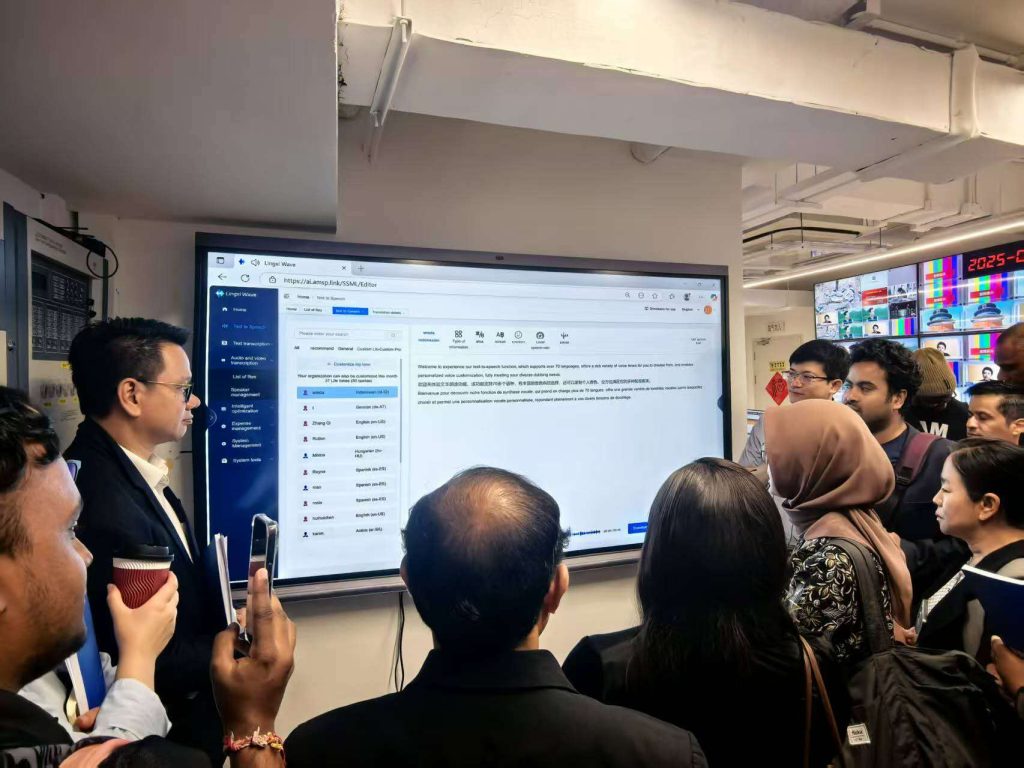
Global South media representatives also made speeches at the event.
Shahrok Saei of the Tehran Times said, “today developing nations are striving to make their stories heard on the global stage, yet the overwhelming influence of the western media makes this an uphill battle. This is why media collaboration among Global South countries is no longer just an option – It is a necessity.”
Khor Chun Kiat of Malaysia’s Sin Chew Daily said, “in this era of rapidly evolving media ecosystems, Malaysia’s media is not merely an observer of the Global South narrative — we are an active participant. As a Chinese-language media deeply rooted in a multilingual and multicultural society, we strive to tell our own stories and contribute to a distinct voice from the Global South.”
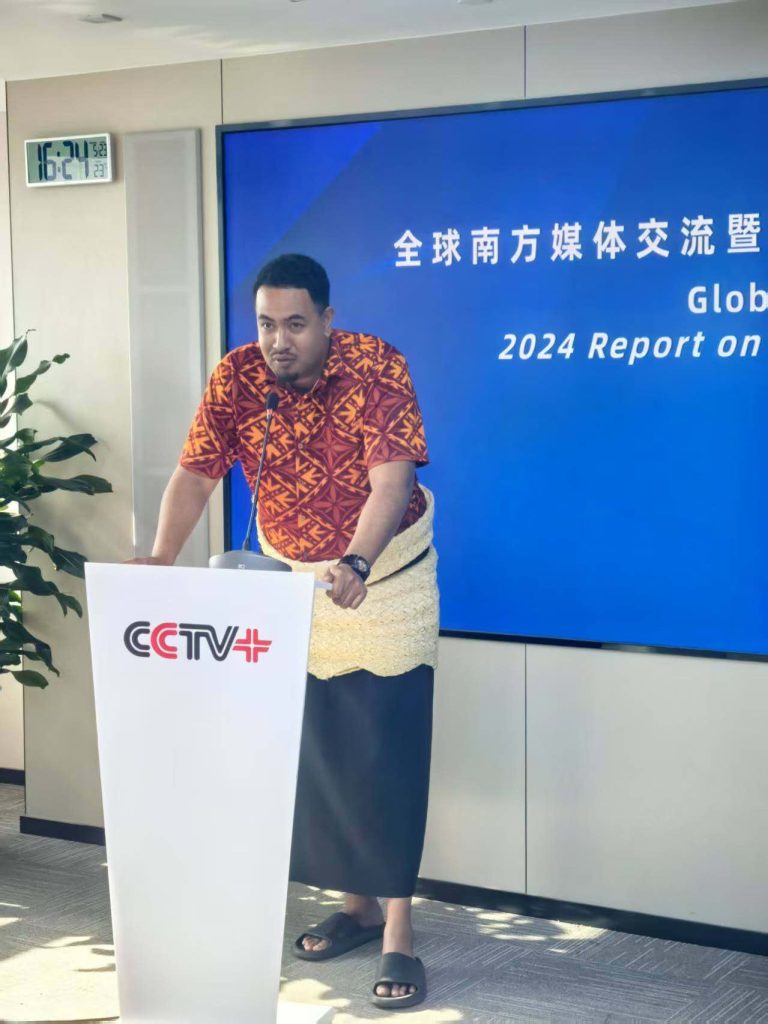
Girvan Lea of the Tonga Broadcasting Commission (TBC), Girvan Lea took the opportunity to highlight one of the most visible outcomes of an ongoing media collaboration between China and Tonga – TBC’s technological advancement.
“Through grants and training programs, Chinese expertise has helped upgrade TBC’s broadcasting infrastructure, ensuring clearer radio signals, sharper television broadcasts, and resilient systems during natural disasters.
“For instance, China’s donation of state-of-the-art equipment in 2019 enabled TBC to digitize its operations, a leap forward for a small island nation facing the challenges of geography and climate,” he said.
By DELI-SHARON OSO
In Beijing, China

